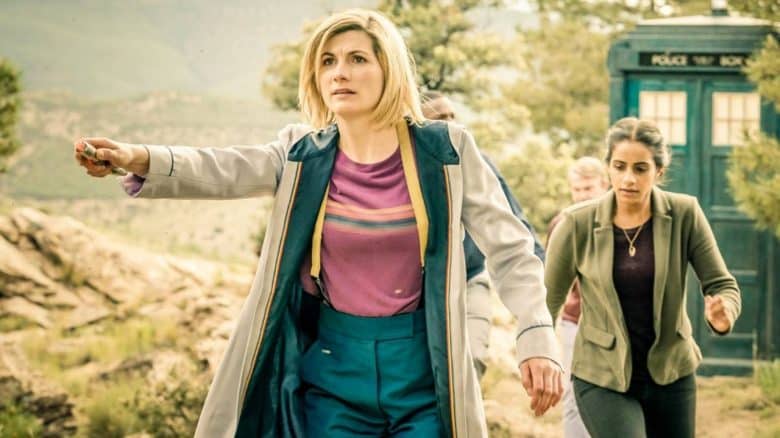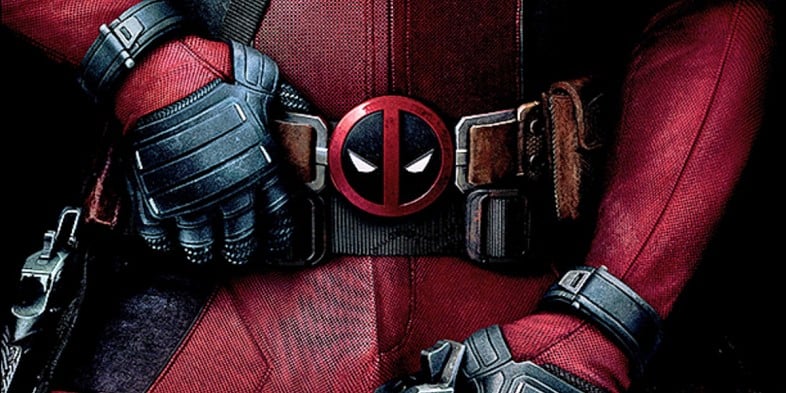Fans of the BBC’s flagship science-fiction drama thought they’d got a treat a few days ago when the first trailer for the forthcoming thirteenth season aired. Unfortunately, the teaser fell a little flat. It’s less than a minute long and included hardly any hints of what we can expect from the season ahead. That might be because the show is still filming and isn’t expected to air until the very end of 2021. Even when it does air, it will be the shortest season of “Doctor Who” since the show’s triumphant return to the airwaves in 2005. Back then, we got thirteen episodes per season plus one Christmas special. That dropped to twelve episodes by Peter Capaldi’s time as the Twelfth Doctor and a mere ten episodes for the current thirteenth incarnation as played by Jodie Whittaker. For Season Thirteen, we’ll get just eight episodes.
The ever-increasing demands of filming and the ever-rising cost of production is what saw the show drop from thirteen episodes per season to twelve and then twelve to ten, but that’s not why Season Thirteen will be cut short. The season that showrunner Chris Chibnall had planned had to be scrapped and rewritten because of the 2020 pandemic, which also put a temporary pause on filming plans. He rewrote the entire season to make it suitable to be filmed under social distancing guidelines, but the loss of time plus the difficulties involved in filming made the trimming of a further two episodes necessary. There is some consolation for fans, though – rather than a bunch of disjointed episodes, Season Thirteen will be one continuous, connected story.

Season-long arcs aren’t exactly a new idea in “Doctor Who,” but it’s been a while since we saw anything this long. Back in 2005, the show gripped the entire British nation with its now-legendary “Bad Wolf” thread, which ran through the whole season before “Bad Wolf” was revealed to be none other than Rose Tyler, the Doctor’s companion as played by Billie Piper. Similarly, hints of Torchwood were peppered through the second season, and the eventual reveal of the Doctor’s arch-enemy, the Master, was foreshadowed all the way through Season Three. Since then, though, the idea of season-long stories has been slowly phased out. Among the many criticisms levelled at Season Eleven, Whittaker’s first season in the role as the Thirteenth Doctor, was the lack of a coherent running theme to link it all together. Now, we’re going to get the exact opposite.
Even when the show has included a “season arc” since the 2005 revival, the season arc hasn’t been the dominant aspect of the plot. It’s always there in the background, but the season as a whole has contained a mix of standalone episodes and two-part stories with cliffhangers. The season finale, for example, is almost always a two-part story and has sometimes even been a three-parter. There was a loose three-parter at the end of Season Twelve when “The Haunting of Villa Diodati” connected with “Ascension of the Cybermen” and “The Timeless Children” to form one narrative. An eight-part story, though, is unprecedented in 21st century “Doctor Who” – or at least on the primary show in the “Doctor Who” universe. Its spin-off show “Torchwood” experimented with the format, giving us a five-part story called “Children of Earth” in its third season to near-universal acclaim. It then followed up with a ten-part story called “Miracle Day” for season four, which was less well-received and ultimately transpired to be the final televised season of the show.
“Doctor Who” fans who are old enough to remember the “classic” series are less likely to be fazed by the idea of an eight-part story. Long-form stories were the rule rather than the exception for the Doctors of the 1960s, 1970s, and 1980s. “The Armageddon Factor” was the final story of Season 16 of the classic show, pitting Tom Baker’s Fourth Doctor against the Black Guardian. It ran for six episodes in 1979. “Trial of a Timelord” doubled that in 1986. The entirety of Season 23 was given over to the tale, which saw Colin Baker’s Sixth Doctor placed charged with meddling in the affairs of other planets and cultures and put on trial by his own race. The trial took an exhausting fourteen episodes and wasn’t a success. Back then, though, an episode of “Doctor Who” was only twenty-five minutes long. Each episode of the forthcoming season is expected to last an hour. In terms of screen time, Season Thirteen will be longer than “Trial of a Timelord.”

Swirling in the background of all the news about the new season is the suggestion that this might be Jodie Whittaker’s last time out as the Doctor. She made her debut in the role at the end of 2018, and three years in the TARDIS is what we’ve come to expect of Doctors in the modern age. It was seen as a done deal that she’s bow out at the end of Season Thirteen at one point, but more recently, there have been suggestions that the forced rewrite of the season has changed those plans, and she’ll stick around for another season before bowing out. The BBC traditionally keeps news about a change of Doctor under wraps for as long as possible, so we may not find out whether Jodie’s saying goodbye to the role or not until the season begins later this year.
If Whittaker does leave, the show will once again need to find a new lead as the Doctor regenerates. The character once described the regeneration process as “a lottery.” To us, it’s more like an online slots game. With all the variables and the mixed chances of success, online slots make a far better metaphor for regeneration than a lottery does. Players at least know they’re going to get something eventually when they play slots online, whereas most lottery players never win anything at all. That’s why it’s always surprised us that “Star Trek” has a dedicated range of online slots, but “Doctor Who” doesn’t. Perhaps it’s simply a road that the BBC doesn’t want to go down with its character.
The one certainty in all of this is that when Season Thirteen of “Doctor Who” airs, millions of fans will tune in to find out how the show copes with the new format and whether or not the Thirteenth Doctor will live to tell the tail. We’ll find out before the end of 2021.














Leave a Reply